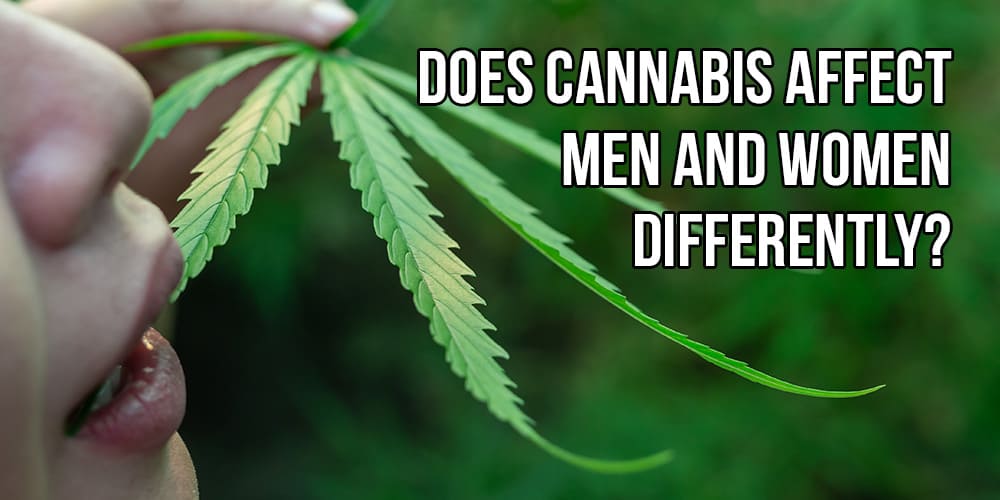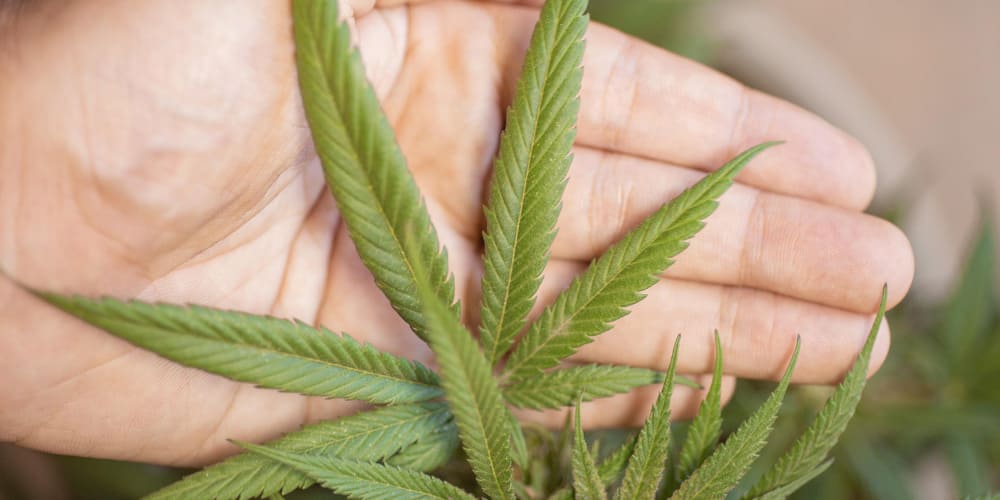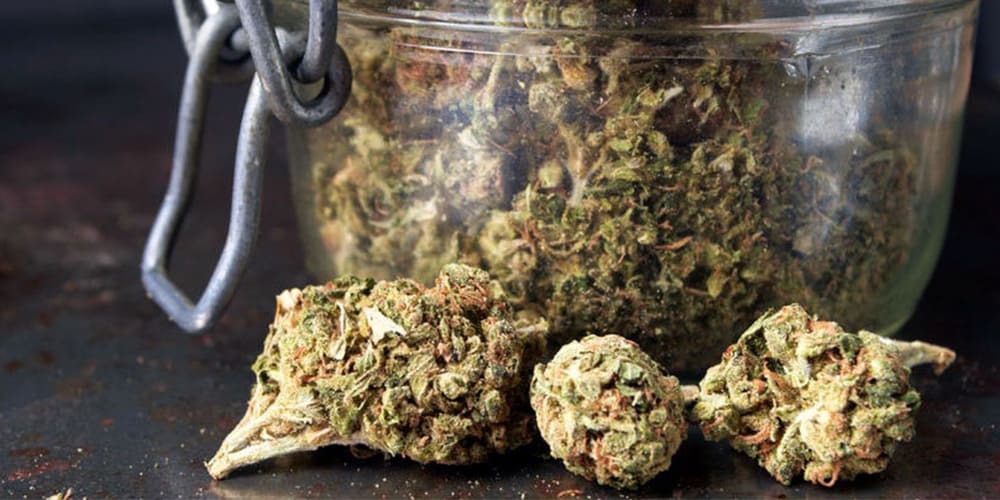Does Cannabis Affect Men and Women Differently?

Cannabis, a plant that has been at the center of heated debates, legal transformations, and medical research, often raises an intriguing question: Does cannabis affect men and women differently? This question not only piques the curiosity of those interested in gender-specific responses to substances but also holds significant implications for medical and recreational cannabis use. In this comprehensive exploration, we delve into the various dimensions of how cannabis impacts men and women, offering insights that intertwine scientific findings with real-world implications.
- Does Cannabis Affect Blood Thickness?
- Can Cannabis Affect Your Libido?
- Does Cannabis Use Affect Your Oral Health?
Gender Dynamics

Understanding the distinct biological and physiological differences between men and women is crucial in exploring their varying reactions to cannabis. These differences are multifaceted, including aspects such as hormonal variations, body composition, and psychological factors that may influence the body’s response to cannabis. For instance, men typically have a higher proportion of muscle mass, which can affect how their bodies metabolize substances, including cannabinoids.
In women, hormonal fluctuations, particularly involving estrogen, can significantly impact their experience with cannabis. Estrogen levels are known to affect the body’s sensitivity to certain drugs, and this includes the compounds found in cannabis. These hormonal variations, along with differences in body fat percentage and metabolism rates between men and women, create a complex backdrop that may lead to differing experiences and effects when using cannabis.
A myriad of scientific studies has shed light on how cannabis affects men and women differently. These studies often focus on aspects such as addiction potential, the intensity of psychoactive effects, and the impact on mental health.
- Addiction and Usage Patterns: Research has indicated that men are more likely to use cannabis and in larger quantities compared to women. However, women seem to develop a dependence on cannabis more quickly – a phenomenon known as telescoping. This difference is pivotal in understanding how cannabis affect men and women differently, especially in the context of public health and addiction treatment strategies.
- Psychoactive Effects: When it comes to the psychoactive effects of cannabis, the variance between the genders is quite notable. Men often report higher levels of euphoria and a greater sense of relaxation. In contrast, women might experience more intense sensory perceptions but also a higher susceptibility to anxiety and paranoia when using cannabis.
- Impact on Mental Health: The mental health implications of cannabis use also exhibit gender-specific characteristics. Women, for instance, might experience more profound mood alterations due to the interaction between cannabis and hormonal fluctuations. On the other hand, men might face different mental health challenges, such as an increased risk of psychosis with heavy cannabis use.
Experience the playful flavor of Bubble Gum Mini joint infused, also known as ‘Bubba Gum,’ an Indica-dominant delight. Each mini joint, infused with kief, captures the essence of real chewing gum with a sweet, floral aroma.
The Role of Estrogen

A crucial aspect in discerning how cannabis affects men and women differently lies in understanding the role of estrogen. This hormone, predominantly found in women, plays a significant role in modulating the body’s response to cannabis. The levels of estrogen can influence how cannabis is processed and experienced, making it a key factor in gender-specific reactions to this substance.
The influence of estrogen extends to various facets of cannabis interaction in the body. One notable area is pain relief – a common reason for cannabis use. Women might experience variations in pain relief effects from cannabis at different points in their menstrual cycle, coinciding with fluctuations in estrogen levels. This variability suggests that estrogen may play a role in modulating the analgesic properties of cannabis, potentially affecting its efficacy as a pain management tool for women.
Additionally, estrogen impacts the cannabis withdrawal experience in women. Fluctuations in estrogen levels can affect the intensity and nature of withdrawal symptoms, making the process different for women than for men. This can include variations in mood, physical discomfort, and other withdrawal-related challenges. Understanding the interplay between estrogen and cannabis is essential for tailoring effective treatment and usage strategies, particularly for women who use cannabis for medicinal purposes.
Delight in the smooth, dessert-like essence of Ice Cream Cake with our Indica Sauce Cartridge. This strain tantalizes the palate with a creamy flavor, enriched by sweet notes of vanilla and sugary dough.
Therapeutic Applications

In the medical cannabis industry, recognizing gender differences is fundamental for effective treatment. Cannabis is increasingly used to manage various conditions, including chronic pain, anxiety, and sleep disorders. However, its efficacy can vary significantly between men and women due to biological and hormonal differences. This variation underscores the need for healthcare professionals to consider gender as a critical factor when prescribing medical cannabis, ensuring that patients receive the most beneficial and tailored treatment.
For conditions like chronic pain, which affect men and women differently, cannabis might not have a uniform effect. Women, for instance, may experience varying levels of relief at different stages of their menstrual cycle due to hormonal fluctuations. This variability in response necessitates a personalized approach to dosage and strain selection in medical cannabis treatment. By factoring in these gender-specific responses, healthcare providers can better address the individual needs of each patient.
Similarly, in treating anxiety and sleep disorders with cannabis, gender plays a vital role in determining the appropriate therapeutic approach. Women and men may respond differently to various cannabis strains and compositions. These differences can influence not only the effectiveness of the treatment but also the occurrence of side effects. A gender-sensitive approach in medical cannabis prescription acknowledges these disparities, paving the way for more precise and effective treatment plans that cater to the unique physiological makeup of each patient.
Sociocultural Perspectives

Sociocultural factors significantly impact how cannabis affects men and women differently. Social stigmas and societal expectations around cannabis use often vary by gender. This can influence individual perceptions and engagement with cannabis, with some genders experiencing more societal pressure or judgment than others. These differences can affect personal usage patterns and the willingness to openly discuss cannabis-related issues.
Marketing also plays a key role in shaping gender-specific attitudes towards cannabis. Advertising strategies often target specific demographics, influencing the perceived acceptability of cannabis and its intended use. These marketing approaches can reinforce stereotypes or preferences, further shaping the cannabis culture and experiences for different genders. The impact of marketing in the cannabis industry highlights the influence of media and societal norms on individual behaviors and perceptions.
Additionally, societal norms can affect access to information and resources about cannabis. Men and women might receive different advice or support levels when seeking cannabis-related information, whether for recreational or medicinal use. This disparity can create a knowledge gap, influencing how different genders approach cannabis use, including consumption methods, dosages, and product choices. Addressing these sociocultural factors is crucial for a more inclusive cannabis culture.
Unwind with the APE Disposable Vape Pen Gushers, a choice cannabis product renowned for its powerful effects. Gushers strain, with its sweet, fruity flavor and earthy undertones, offers euphoria and relaxation, making it perfect for unwinding or aiding in a restful sleep.















